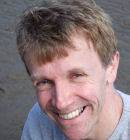Working in a course team
made up of four kinds of people. First, there are the academic subject-matter experts. These are the physicists, the historians, the sociologists and so on. Second, there are instructional designers from the Institute of Educational Technology. Their interest lies in the structuring of the subject-matter, the selection and specification of learning objectives for the students, the preparation of suitable assignments, and in evaluating the success of the courses. Third, there are BBC television and radio producers in the teams. Naturally, they are concerned with the use of the broadcast media for teaching the courses. Lastly, there are administrative assistants and editors who help to get the courses produced on time. Backing up the teams are graphic designers, house editors, a publishing department, test laboratories, studio staff, and many others who contribute to the finished product. I believe the University has achieved the right ‘mix’ in its course teams
D. G. Hawkridge ‘Space for the Open University, Proceedings of the Royal Society of London. Series A, Mathematical and Physical Sciences, Vol. 345, No. 1643, A Discussion on the Introduction of Satellites into Education Systems (Oct. 7, 1975), pp. 567-573 (p. 567)
People often ask how the OU system works. The short answer is: painstakingly. Courses (which usually form one-sixth of an honours degree programme) are produced by teams of dozens of people, including OU and external academics, local tutors from around the UK, professional editors, TV producers, website designers, technicians and others. This course team system of production is very intensive and the fact that it’s survived decades of managerialist drives for greater efficiency in the UK public sector is a minor miracle of academic autonomy.
In order to ensure that the distance learning materials are clear, cogent and academically rigorous, members of course teams read each other’s work in a number of different drafts — at least three – and make comments on these drafts at a series of meetings. And often in writing too. I remember with particular agony email exchanges of many hundreds of words about one sentence. (In defence of those of us involved, it did happen to be a sentence about Adorno and Horkheimer). To sit listening while a number of very bright people make detailed criticisms of your work is a process that is probably best described as character-building. If I said that no-one ever fell out and that each meeting began and ended with a group hug you wouldn’t believe me, and you’d be right. The process is wonderfully stimulating but unless you have a vast and impermeable ego, at times it’s also pretty terrifying.
- Professor David Hesmondhalgh

